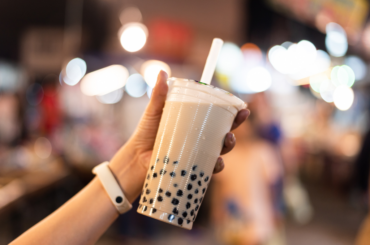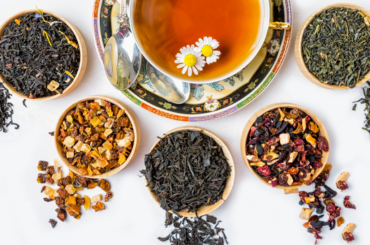It’s no secret that many new moms experience stress, anxiety, and depression after giving birth. While most women are equipped with a support system to help them get through this trying time, few are prepared for the physical toll pregnancy and childbirth take on their bodies.
New moms can experience several uncomfortable side effects from breastfeeding, including excess sweating, swollen breasts, tenderness, and cracked and bleeding nipples.
In almost every culture, postpartum women are encouraged to drink hot beverages, like tea, after childbirth because of the healing properties found in many herbs. These teas ease digestion, help reduce swelling and bruising, and speed up recovery by providing antioxidants, vitamins, and minerals, like iron – all of which can be depleted after giving birth.
Fortunately, there are several natural ways to cope with the readjustments of motherhood. One great way to soothe your body postpartum, as mentioned above, is by drinking teas that promote relaxation and ease digestion.
Many of these teas have properties that also support lactation and healing of the uterus after childbirth.
Suffice it to say, you should sip postpartum herbal tea if you want your body (and mind) back on track quickly.
Herbal Teas for Postpartum
The abrupt drop in estrogen and progesterone triggers a rapid rise in stress hormones, leaving you feeling exhausted and disconnected from your usual self. In addition to having little sleep, recovering from the physical strains of childbirth, and having less time to yourself, you’re also caring for another person 24/7. That can be challenging even under the best circumstances.
After birth, some new moms feel lost about what to eat. While most women want to stock up on vegetables and proteins, the postpartum market is filled with teas and supplements that promise a fast track back to pre-pregnancy shape.
Herbs for afterbirth are not an all-encompassing solution for your postpartum blues. It’s still best to consult with an expert.
If you’re looking for what teas are good for postpartum, here’s our list:
Red Raspberry Leaf Tea for Postpartum
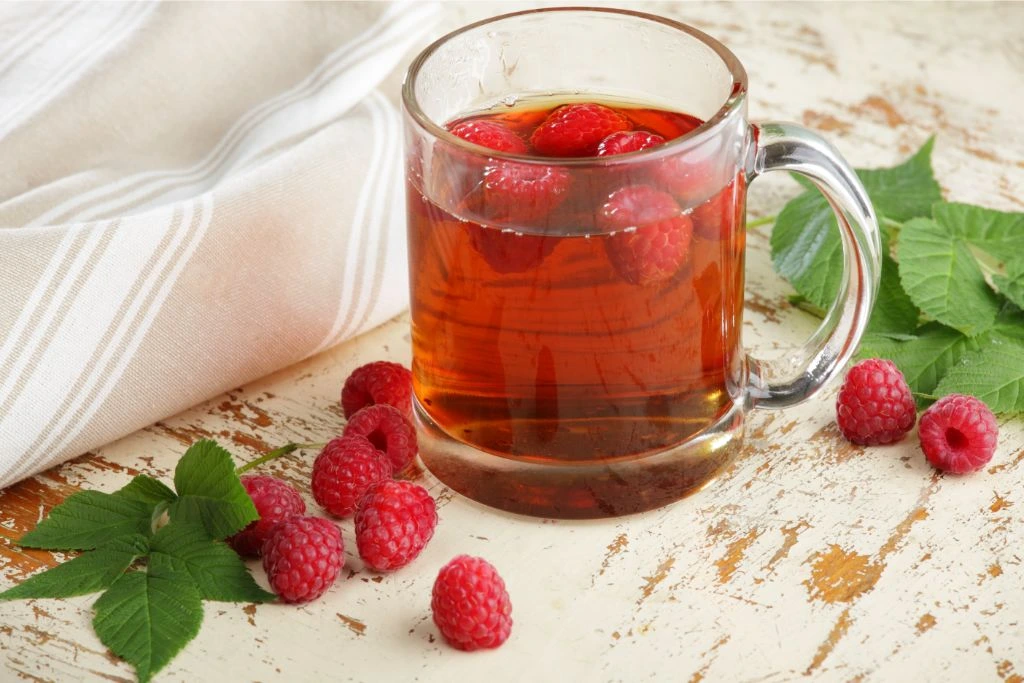
Red raspberry leaf tea contains high levels of iron, calcium, magnesium, manganese, and folic acid. All these are important for healing and breastfeeding. This tea is also beneficial for easing cramps, regulating blood flow after birth, and reducing the risk of future uterine, ovarian, and breast cancers. Studies also show that it helps reduce the risk of early labor by 50 to 70% and is safe to drink during pregnancy.
Red raspberry leaf tea is best drunk without other caffeinated beverages since caffeine can reduce the effects of folic acid. Red raspberry leaf tea can be enjoyed hot or cold, with or without lemon and honey.
Chamomile Tea for Postpartum
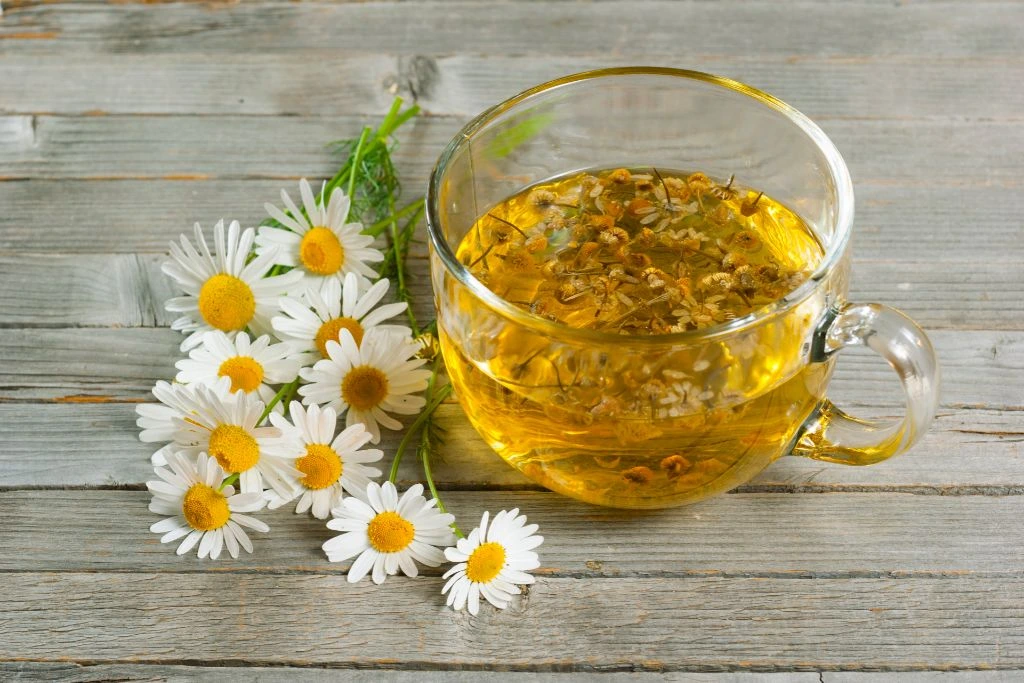
Chamomile tea is one of the best teas for postpartum because it’s packed with antioxidants, minerals, and vitamins. In fact, this herbal tea is so rich in nutrients that it’s also used as a natural remedy for sleeplessness in infants. It also helps heal postpartum bleeding and eases stomach pains, which are common after birth.
Chamomile tea has a mild flavor that works well with almost any other tea. It can be enjoyed hot or cold, with or without sweeteners, like honey or sugar.
Nettle Tea for Postpartum
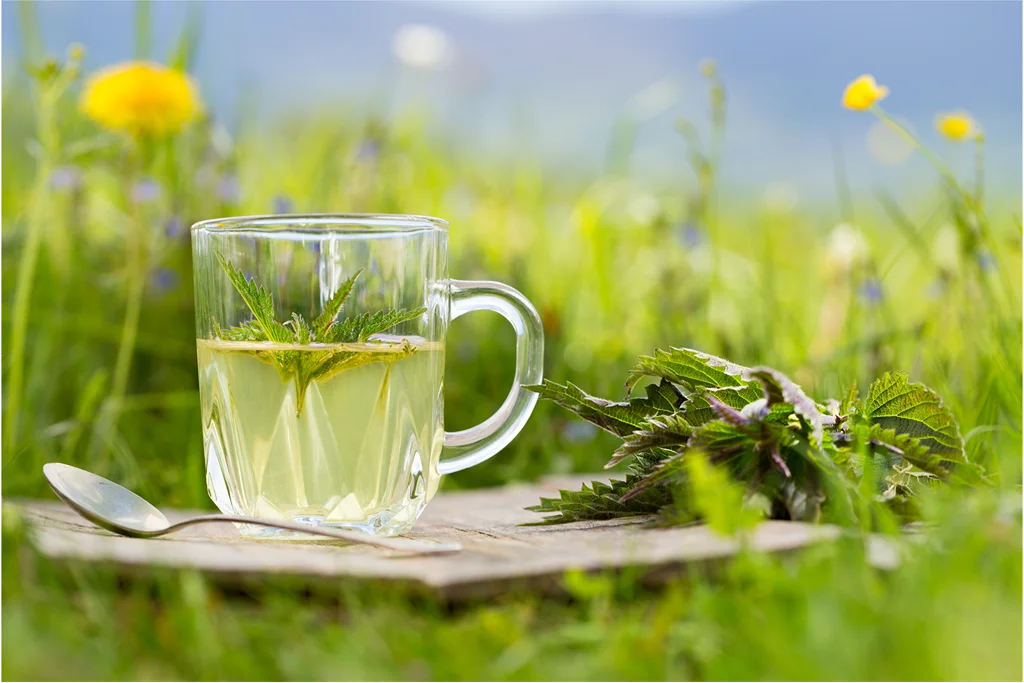
Nettle tea is one of the best herbs for postpartum because it’s packed with iron, calcium, magnesium, and vitamins A and C. The high iron content in nettle tea helps boost postpartum women’s energy levels, which are often low after childbirth. It also helps regulate postpartum bleeding and ease stomach pains.
Nettle tea has a strong flavor and is best paired with a slice of lemon or a squeeze of lemon juice. They are also safe for consumption during pregnancy and lactation. Nettle tea is available in most health food stores.
Moringa Tea for Postpartum
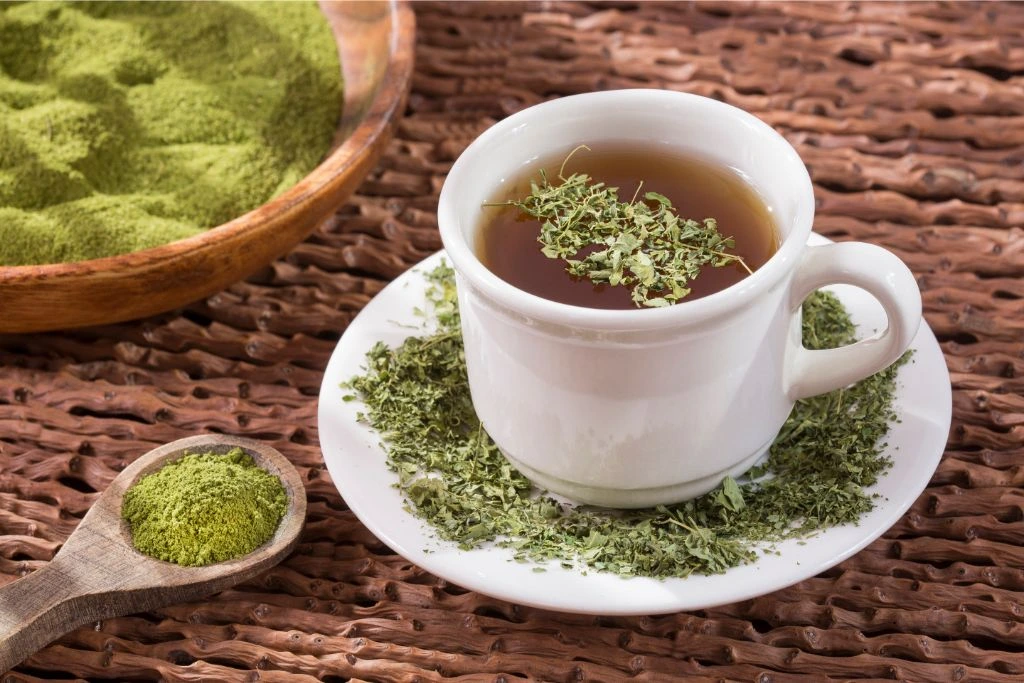
Moringa tea is one of the best herbs for postpartum because it’s filled with antioxidants, vitamins, minerals, and amino acids. In fact, this tea is high in every single vitamin and mineral, making it an excellent postpartum tonic. It’s a good source of protein, fiber, and vitamins C, E, K, and B6.
Moringa tea also helps boost the immune system, which is crucial after giving birth. It’s recommended to enjoy this without milk or other dairy products to get maximum benefits.
Moringa tea has a mild flavor, best enjoyed with sweeteners, like sugar or honey. It can be enjoyed both hot and cold and is safe to drink during pregnancy and breastfeeding.
Find the Best Tea to Drink After Giving Birth
The postpartum period is a great time to get creative with herbal tea blends. However, it’s important to remember that the best tea for postpartum will depend on each individual’s health and nutritional needs.
If breastfeeding, check with your healthcare provider to see which teas are safe to drink. Ensure that you include plenty of water in your postpartum diet, and try to fit in healthy snacks, like fruit, nuts, sandwiches, and salads. Postpartum recovery is a delicate process, and healthy eating will help you get through it with plenty of energy and strength.
Motherhood is a joyful event, but it can take a lot of adjustments. Luckily, there are many things you can do to ease this transition period with the help of natural remedies, such as teas prepared with special ingredients designed to alleviate common postpartum symptoms.
FAQs
Can nursing mothers drink herbal tea?
Yes. Nursing mothers can drink herbal tea. As mentioned, herbal tea can help your body enter a relaxed state, helping you produce more milk for your little one. While it can be an enjoyable treat, it’s best to limit your consumption to one to two cups a day since some teas still have caffeine content. Check with your doctor or midwife first.
Does herbal tea increase milk supply?
Yes and no. It depends on the herbal tea that you’re taking. Some teas, like red raspberry tea and moringa tea, can help increase breast milk supply. However, there are herbal teas that you should avoid, like sage and jasmine. These herbal teas can decrease your breast milk supply.
What drinks are good postpartum?
Hydration is critical after giving birth. Ideally, you should drink mostly water. But other beverages, such as milk, fruit juice, and tea, also help you recover from the physical toll of childbirth.


